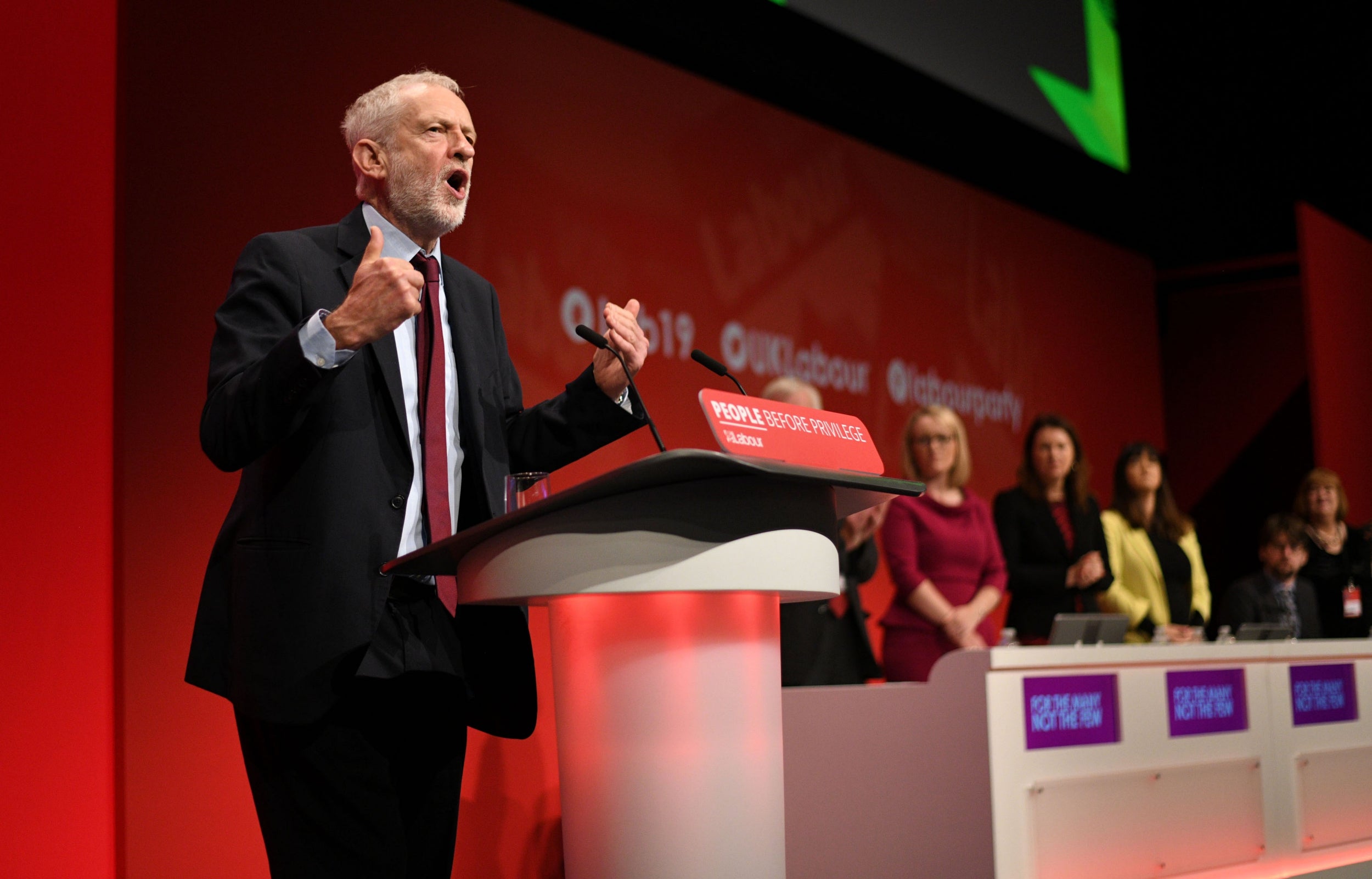What next for the Labour left?
With the new leader declaring a ‘new era’ for the party, Ashley Cowburn looks at the future of Corbyn’s allies


As the results of Labour’s protracted leadership contest were announced at 10.45am on Saturday, it became clear the left’s preferred candidate, Rebecca Long-Bailey, had been emphatically defeated. Among the 14,700 registered supporters – those who joined to participate in the party’s ballot – just 650 individuals voted for the shadow business secretary, who has been a key ally of Jeremy Corbyn in recent years.
Across all sections of the party’s internal electorate, including party members, registered supporters and affiliated organisation, Keir Starmer secured a convincing majority with an overall vote share of 56.2 per cent. In his victory video, the new leader declared a “new era” for the party. So what now, for the Labour left?
Corbyn, alongside his close allies shadow chancellor John McDonnell and shadow home secretary Diane Abbott – both totemic figures of the Labour left in recent years – will now return to the parliamentary backbenches they occupied for decades before his landslide leadership victory in the summer of 2015.
Keen to assemble a new top team, it is likely many shadow cabinet ministers will also be told by team Starmer to resign their positions, including the likes of Ian Lavery and Richard Burgon. But perhaps one of the only surviving key figures of the Corbyn-era will be Long-Bailey. During the leadership contest Starmer committed to keeping his rival on the frontbench. She is unlikely to be given a core role in his team, but the shadow business secretary has been an architect of Labour’s radical policies to combat the climate emergency and the new leader may wish to keep the Corbyn loyalist developing the Green Industrial Revolution.
Many key allies of the outgoing Labour leader have already departed Westminster, including his senior adviser Andrew Murray, who also acts as chief of staff to the Unite union boss Len McCluskey, and his policy chief Andrew Fisher. Corbyn’s director of communications and former Guardian columnist Seumas Milne is expected to leave the leader’s office alongside his boss. For other senior figures, including chief of staff Karie Murphy and Labour general secretary Jennie Formby, Starmer will reportedly request their resignations, citing the party’s handling of allegations of antisemitism within its ranks. This, however, may take some weeks and months of negotiations.
Critically, a shift in balance on the National Executive Committee – Labour’s governing body – now looms. The 40-strong NEC has the power to recommend rule changes to be put forward to a vote at the party’s annual conference and makes crucial decisions on internal processes. Alongside voting for the party’s next leader, three positions on the body were on the ballot paper and Corbynsceptics swept them up. As some of the positions also belong to members of the shadow cabinet, including the leader, the Labour left’s slim majority on the NEC is likely to be diminished.
But despite an overhaul of the frontbench and the imminent departure of senior figures from the Labour left from the leader’s office in parliament’s Norman Shaw North building, the party’s membership remains overwhelmingly left-wing and will still hold considerable power in deciding the direction of party policy on crucial issues.
Ms Abbott, who is to resign as shadow home secretary, told The Independent ahead of the announcement: “Ordinary Labour Party members are overwhelmingly on the left. And they remain admirers of Jeremy. However, if the polls are to be believed, they will have voted overwhelmingly for Keir. The answer to that conundrum is that, for ordinary members their heart says Jeremy but their head says Keir.
“What happens next depends on whether Keir decides to have a purge and drive a substantial number of left-wingers out of the party. If Keir does adopt scorched earth tactics, then the party will revert to New Labour era politics. But, if left wing party members retain their numerical advantage, they may well win important policy battles on issues like immigration.”
Acutely aware of this, Starmer, often described as “soft left” himself, sought to showcase his left-wing credentials during the contest, by telling supporters he will not ditch the party’s “radical socialist tradition”, as he committed to keep major parts of Corbyn’s policy agenda, including increasing taxation for the top 5 per cent and plans for a Green Industrial Revolution. He has also vowed to keep plans to scrap tuition fees and renationalise key industries including rail, mail, water and energy.
It is on policy where the Labour left hopes to remain relevant in the coming months and years – holding the new leader to the commitments made during the three-month long leadership contest. The 40,000-strong group Momentum, which was launched in 2015 to support Corbyn’s policy agenda, will be critical to this. The organisation will continue to hold The World Transformed festival’s alongside Labour’s annual conference. Momentum will act as “defenders of the programme and holding [Starmer] to his promises” during the leadership contest, a source told The Independent.
“The leadership contest has been characterised by all of the candidates really espousing policies that are way to the left of previous contest. We are very clear that we don’t want to do what Labour First and Progress did during Jeremy’s leadership – they spent four years trying to completely torpedo the leadership and undermine Jeremy at every opportunity.”
“Obviously they’ll be areas we disagree,” they added. “At the end of the day we want Labour to win and will campaign for Labour to win.”
Join our commenting forum
Join thought-provoking conversations, follow other Independent readers and see their replies
Comments